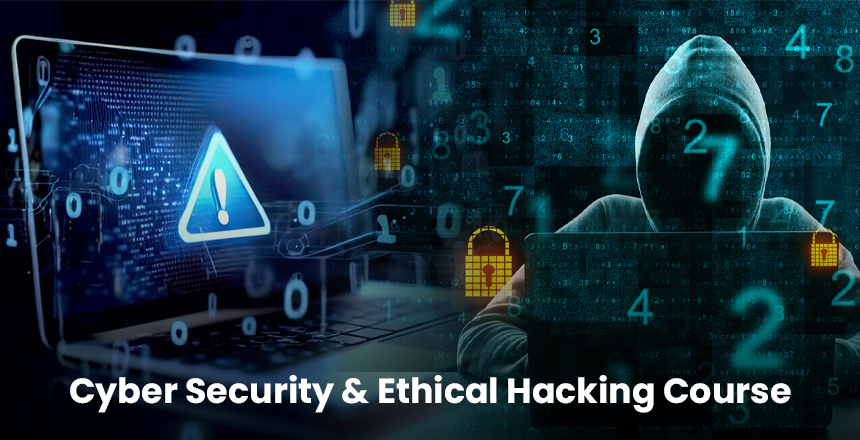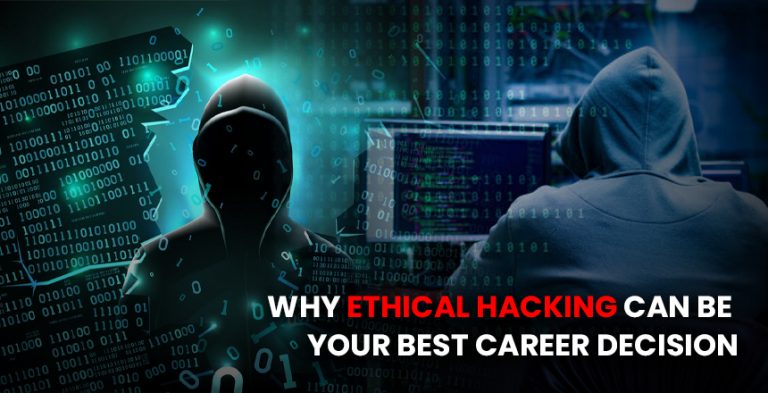Cybersecurity cannot be optional anymore as the modern world is at the stage of hyper-connectivity. The cyber threats have increased and they are becoming more advanced as more people struggle with online banking, e-commerce, cloud computing, and remote work. Each day, hackers target personal and corporate data with sophisticated methods to crack the security systems. The need for cyber security experts is soaring high in this environment and ethical hackers are in the center of this fight. A Cyber Security & Ethical Hacking Course equips students to learn about, identify and prevent such electronic threats and remain ahead in a game of cat and mouse with the intruders.
Knowing Why Cyber Security is Needed
With more services being transferred onto the internet, there is an increase in cyber-attacks. The system is not all immune, whether this is theft of personal identity or significant data breach at transnational corporations. Cybersecurity refers to practice oriented to defense of systems, networks, and applications against digital assaults, designed to read, modify, or cause damage to sensitive data. Such attacks may cause businesses serious financial loss, legal problems, and corporate reputational break. People are also susceptible to scams and privacy hackings as well as fraud. Thus, cyber security is very vital in securing companies as well as individuals in cyberspace.
What is Ethical Hacking?
The legalized art of violating the security of a system to pin out the possible data breach and threats on a network is known as ethical hacking. No intention to damage the system is followed but the aim is to break the defense mechanisms. Malicious hackers and ethical hackers, also referred to as white-hat hackers, apply the same tools and techniques in an illegal and destructive way. They are supposed to identify the vulnerabilities before the bad actors. They are important as they enable companies to fortify their defenses and improve their security activities through simulated cyber-attacks that allow them to avoid future breaches.
What You Can Gain in a Cyber Security & Ethical Hacking Course
An effective course in this area should further incorporate a wide range of different subjects so that the eager students are supplied with the appropriate combination of theory and practice. A majority of the courses start with the root of the networking, which incorporates protocols, IP addressing, ports, and network devices. Knowledge in the communication between systems aids a learner to understand the ways in which cyber-attacks are being launched through the weaknesses in networks. The course then submerges into the world of operating systems, mostly Windows and Linux and how the hacker manipulates and moves through the systems using the command line.
Based on this, the students are then exposed to phrases that exist in the cyber world like viruses, worms, Trojan, ransomware, spyware, and phishing. They also get to know how these threats are exploited, transmitted and most notably how we can protect them. The ethical hacking techniques (once in the core modules) involve reconnaissance (gathering of information), network-scanning of the open ports, finding out weaknesses in a system, and exploiting the situation in a controlled environment. This practical work of combining confidence and honing skills of investigation.
Techniques and Tools Which Develop a Cybersecurity Professional
During the course, students have an opportunity to experiment with common tools in the industry. Popular tools, such as the Kali Linux distribution, Nmap, Wireshark, Metasploit, and Burp Suite offer functionalities and tools that come to the mind of every ethical hacker. They are applied to scan, analyze, exploit and report real-time vulnerability. Web application security is also available to students to understand and learn about the most common issues in a web application like SQL injection, cross-site scripting (XSS), and cross-site request forgery (CSRF). The fundamentals of secure coding are also provided to make sure that students can learn how to write clean and secure code that does not open the door of their systems to the attackers.
Besides heating up security skills, the course also gives defensive capabilities comprising firewalls, intrusion detection systems (IDS), virtual personal systems (VPN), and endpoint assurance. More advanced modules can just as often cover cyber forensics and incident response, teaching students how to investigate a breach and rebuild a system following an attack.
Who Will Benefit by Taking This Course?
Cyber Security and Ethical Hacking Course is recommended to all individuals with a passion towards tools and digital protection. It will be most suitable to students majoring or taking courses in IT or computer science, and to individuals who are in the workforce and seeking to change their area of employment to one that accrues high growth rate. The entrepreneurs and the small business owners can gain by learning to safeguard their own digital assets. Previous programming or networking knowledge is definitely useful, but most programs designed to accommodate newcomers begin at the basics and build their way towards more complex subjects.
Post course career opportunities
Earning a degree in cyber security and ethical hacking exposes an individual to numerous employment opportunities. Popular titles are Ethical Hacker, Penetration Tester, Cybersecurity Analyst, Security Consultant, Network Security, and Engineer, and Security Operations Center (SOC) Analyst. More experience and additional certifications may result in the transition into higher positions like Information Security Manager, Cyber Forensics Expert or even Chief Information Security Officer (CISO).
There is a good salary level and future employment security in the field. As data are now the most important asset to businesses, individuals who are capable of securing such data are in turn becoming some of the most important assets.
Format and Duration of Learning
The majority of the institutions provide flexible delivery in order to accommodate various learners. One may take the courses in the classrooms, by means of online instructor-based classes, and in the form of self-paced recordings. It can also take 2 to 6 months depending on the depth of the course. Even more advanced programs, the preparation of certification exams of such globally recognized credentials as CEH (Certified Ethical Hacker), CompTIA Security+, and CISSP.
Final Thoughts
The internet is not just an opportunity, it is full of risks as well. The digital world is growing; hence, the need to have cyber heroes who can effectively protect data, systems and the users. A Cyber Security & Ethical Hacking Course does not only educate you on being a hacker but it teaches you to think, act responsible and secure what is important. Whether it is the beginning of your professional life or you are willing to update your qualifications, this course could be the way to a future-proof and significant career in the most essential industry of the 21st century. Have you ever wondered how it is that hackers think or how systems are hacked, or more importantly how to prevent it? One thing that is commonly understood is that cyber security attacks are increasing, and are not going away any time soon. Well then, this course might jumpstart you into a very exciting and meaningful career where you get to take a swing at preventing cyber security attacks.



